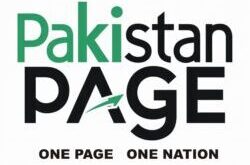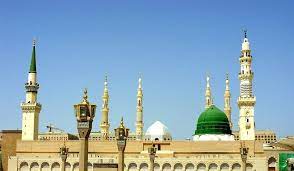Prophet Muhammad (PBUH): A Timeless Model of Excellence for the Modern World* Celebrating His Enduring Legacy on 12th Rabi’ al-Awwal
Written by faryal safeer
As the world marks 12th Rabi’ al-Awwal 1446 ,the birth anniversary of Prophet Muhammad (peace be upon him), it is a time to reflect on his extraordinary life and timeless teachings. Celebrated as the most complete example of human excellence, his life remains a guiding light for people in various spheres—personal conduct, family life, leadership, and even scientific thought. From the ethical framework he provided to the foresight evident in his prophecies, Prophet Muhammad’s influence continues to resonate, offering solutions for contemporary global challenges in 2024.
Exemplary Personal Conduct
Before even beginning his prophetic mission, Muhammad (PBUH) was known as “Al-Amin”—the Trustworthy—because of his impeccable personal integrity and honesty. His ethical standards were unmatched, earning the admiration of both friends and foes alike. He famously said, “The best among you are those who have the best manners and character” (Sahih Bukhari), setting an enduring standard for ethical behavior. His patience, humility, and ability to forgive even in the face of hostility remain models of moral strength for individuals and leaders alike today.
A Model for Family Life
In his family life, Prophet Muhammad (PBUH) demonstrated profound love, respect, and care, especially in his marriage to Khadijah. Their relationship was one of mutual support, with both partners contributing to each other’s spiritual and personal growth. He advocated for the fair and compassionate treatment of women and children, advising, “The most perfect of believers are those who are best in character and most kind to their families” (Sunan Abu Dawood). His model for family life—centered on kindness and fairness—continues to influence modern-day family dynamics and gender relations.
Social Justice and Ethical Reforms
Muhammad’s vision extended far beyond the personal; his social reforms were transformative. He championed the rights of the poor, the marginalized, and the oppressed. The institution of Zakat (compulsory charity) and Sadaqah (voluntary charity) was a revolutionary step toward alleviating poverty and ensuring social welfare. His teachings against infanticide and the rights of women in inheritance were groundbreaking reforms. As the Quran says, “And do not kill your children for fear of poverty. We provide for them and for you” (Quran 17:31). His relentless focus on social justice resonates with today’s global conversations around equality and human rights.
Visionary Leadership and Governance
Prophet Muhammad (PBUH) was not only a spiritual leader but also a visionary statesman. The Constitution of Medina, which he drafted, laid the foundation for a pluralistic society, promoting coexistence among diverse religious and tribal groups. His leadership embraced principles of consultation (Shura) and collective decision-making, setting a benchmark for inclusive governance. The balance of justice, compassion, and pragmatism that defined his rule continues to inspire contemporary political systems, advocating for diversity, fairness, and collaboration.
Ethical Conduct in Warfare
Even in the context of conflict, Prophet Muhammad’s conduct set ethical standards that align with modern humanitarian principles. He emphasized the protection of civilians, including women, children, and the elderly, saying, “Do not kill a child, or a woman, or an aged person” (Sahih Muslim). His commitment to peaceful resolutions, as demonstrated in the Treaty of Hudaybiyyah, underscores the value of diplomacy over violence. These principles remain critical as global societies continue to grapple with war and conflict.
Spiritual Commitment and Holistic Living
Muhammad’s spiritual life was marked by a profound balance between devotion and practical living. His daily routine included prayer, fasting, and charity, integrating spirituality into every facet of life. “Indeed, the most beloved of you to Allah are those who are most beneficial to people” (Al-Mu’jam Al-Awsat), he said, illustrating that faith and service to humanity go hand in hand. His teachings on mindfulness, charity, and community engagement are deeply relevant as we navigate an increasingly individualistic world.
Scientific Insights and Daily Practices
Perhaps one of the most fascinating aspects of Muhammad’s legacy is the way his teachings align with modern scientific and health principles. For instance, he recommended walking after meals to aid digestion, a practice supported by modern health science. His advice to drink water in small sips rather than large gulps aligns with current recommendations for better digestion and hydration.
Additionally, his emphasis on moderation in food intake—“Eat and drink, but be not excessive” (Quran 7:31)—mirrors contemporary understandings of nutrition and well-being. The physical movements involved in Salat (prayer) offer a form of exercise that improves flexibility, posture, and cardiovascular health, blending spirituality with physical well-being.
Moreover, the Quran’s mention of the expansion of the universe—”And the heaven We constructed with strength, and indeed, We are [its] expander” (Quran 51:47)—demonstrates a cosmological insight that has only recently been explored through modern science, showcasing the depth of his teachings.
Enduring Relevance in 2024
As we face the challenges of the 21st century—whether social inequality, environmental crises, or conflicts—Prophet Muhammad’s life and teachings provide a roadmap for navigating these issues with integrity, compassion, and foresight. His principles of justice, social responsibility, and respect for all of creation are as vital today as they were over 1,400 years ago.
In 2024, the world continues to seek solutions to complex problems, and the Prophet’s timeless values—truthfulness, kindness, and a commitment to the common good—offer both individuals and societies a path toward a more harmonious future.
As we commemorate the life of Prophet Muhammad (PBUH) on 12th Rabi’ al-Awwal, his example remains not just an ideal but a practical guide for ethical living in an ever-changing world.

